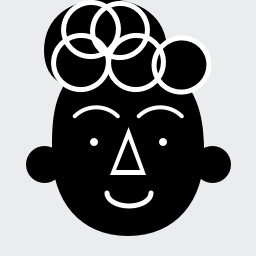
Step 1: Take control of your learning
 iii
iiiNewsflash: A long stretch of time without engaging your brain with the learning process is bad for you. Experiments have shown that students who enjoy long summer holidays are more likely to be behind their peers who have four- or five-term school years (and short summer holidays).
Why is this? Most students like to switch their brains off during the holidays and this can undo many of the growth processes that have been stimulated in school. Learning is a process that helps to develop your brain so you need to think of yourself as an independent learner this summer.
You'll be amazed at how these skills of independent learning will help you in the classroom and in exams. It's not genius that gets you through school; it's a mixture of skills, confidence and practice.
Let's get started with Step 1: To be an independent learner, you need to take control of your learning.
Here's how to do it: Have a clear idea of what interests you and what you would like to learn. How about setting yourself a project for the summer? You could start by deciding on a skill you would like to develop or a topic you would like to know more about. Maybe you would like to learn more about the Hong Kong music scene or recent discoveries in science. You might want to learn about the global economy or how movies are made. Maybe you're lucky enough to be getting away this summer to see another part of the world.
What a golden opportunity to learn about the history, culture or language of the people that live there. You may want to learn something less knowledge-based and more skills-based, like how to create your own website or blog, or how to pirouette while ice-skating (now that would impress your friends). Free yourself from the constraints of what you have to learn and think about what you would like to learn. Inject some imagination into this; continuous learning can take place through a range of experiences but to make the most of a learning opportunity you need to get the most out of it and make it happen.
Set your own goals and make decisions about the steps you will take and when. Your goal for the summer is what you are going to learn. The steps to reaching your goal are called objectives, or targets. Setting clear and effective targets is essential to fulfilling your aims. You might have used this method in preparation for exams or tests. Targets that work are called Smart. Let's apply them to the independent learner this summer:
Specific - short and to the point. If your goal is to learn about the latest discoveries in science, what discoveries in particular would you like to learn about? Discoveries to do with the universe or space? Discoveries related to human health? If you want to create your own website or blog, what will it be about? Cars? Music? Fashion? History? Define exactly what your project is about.
Measurable - make sure you can monitor your progress and have something to show for your achievements. How will you go about learning? Break your project down into steps that you can tick off as you go. Your project may require research or practice in the first few weeks. Work towards an end result. Will it be a perfect pirouette or a podcast? A movie or a magazine? A comic or a musical composition?
Attainable - be ambitious, but think carefully about when you can complete each task. If you feel good about your project and what you are going to learn, then you will want to do it. We are all human though, so a little discipline may be needed at times. Will this be a daily project or something you work on twice a week? You decide what is reachable.
Realistic - don't underestimate yourself either. Push yourself but not too hard. If you find some aspects of your project are not stretching you, then raise the bar a little; you might need to read more, or read more challenging material. If it becomes too big to handle then downsize it; you may need to reduce the number of pages you want linked to your website, for example.
Targets - make your aim clear and make sure you have deadlines. Keep reminding yourself of what stage you are at with your project and keep the ultimate date of completion in mind. Progress is the key to success.
Verity Aylward has been a secondary school teacher for more than 10 years. She is the author of the book Mind Explosion: Max Out Your Brain for Exam Success. For more information about the author and her book, go to www.mindexplosionbook.com
